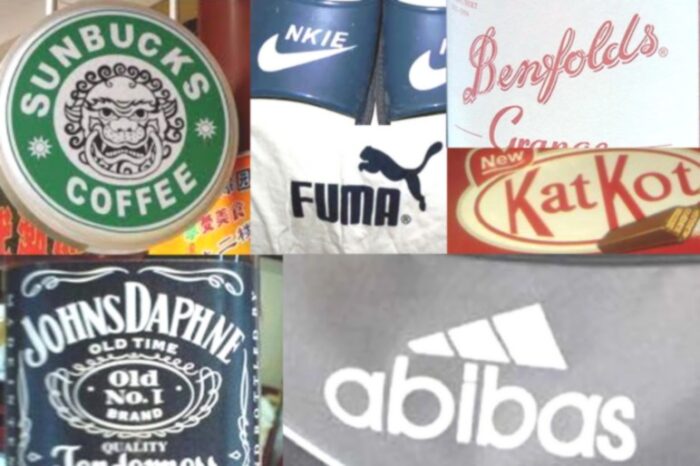14 Mar Mariah Carey – the Queen of Christmas Trade Mark?
 Author: Ian Aldridge, Progressive Legal
Author: Ian Aldridge, Progressive Legal

If you were born after 1994, you probably don’t remember a Christmas Holiday without hearing Mariah Carey’s hit Christmas single “All I want for Christmas is you.”
Every year since it was released, her Christmas songs have produced millions, and the movie and TV features of the song have only propelled the song’s popularity and profitability even more. The song is so successful, it remained in the charting ‘Top 100’ almost every year since 1994, from seasonal popularity alone. You would think that the fame which Mariah has garnered with her hit Christmas track would sufficiently entitle her to “Queen of Christmas” status – she certainly did. However, the title was defended by a competing musician, Elisabeth Chan, who, as a matter of principle believed that nobody should own Christmas, nor be the proverbial monarch of it.
In March 2021, Mariah Carey attempted to trademark “Queen of Christmas,” submitting to the US Patent and Trademark Office (USPTO). Carey expressed an intention to command exclusive rights over the phrase, and by the same token, prevent others from using it without express permission, and permission comes at a high cost. Like with her hit track “All I want for Christmas is you”, the “Queen of Christmas” phrase would be very profitable if licensed to brands for the purpose of distributing products which contained the phrase, or even if mentioned on air.
This would not be the first Christmas-related trademark Mariah has filed for. As an industry giant, Mariah Carey and her legal teams have been prudent in seeking out trademarks relating to Mariah’s Christmas musical successes. “Mariah’s Christmas…The Magic Continues,” “Mariah Carey’s Magical Christmas Special,” and “Christmas Princess” are among the many pending trademarks she has filed for. Knowing that she could profit from obtaining the exclusive rights over “Queen of Christmas” was more than likely the driving factor for her application.
This is precisely the reason fellow musical legend, Elisabeth Chan, felt it necessary to defend the “Queen of Christmas” phrase in Court. In August of this year, Chan and her lawyers filed a declaration of opposition to Mariah’s trademark application. Chan claimed that the title was explicitly hers, originating with her Christmas album, “The Queen of Christmas” which released in September 2021, several months after Mariah’s trademark application was filed. However, long before Chan’s album release, she was crowned as “The Queen of Christmas” from an article written by Sophia Hollander for The New Yorker and was even referred to as The Queen of Christmas on David Letterman.
Recently on November 15th, 2022, The USPTO officially denied Mariah Carey’s application to trademark “Queen of Christmas,” and Chan and her lawyers were thrilled, but not for the same reasons as Mariah would have been had she won in Court. Chan emphasised that ‘Christmas should not be owned.’ “Queen of Christmas” would have been monetized in every imaginable way by Mariah, which according to Chan’s sentiments would have been to no societal benefit.
Tompros, Chan’s attorney remarked that Mariah is free to create products bearing the “Queen of Christmas” mark, she just can’t own the trademark for it; Once again illustrating the point of Chan’s opposition as being for the purpose of keeping Christmas principally unowned.
Mariah has attempted to trademark other Christmas names as well, some of which have been denied also. But while Christmas may have been saved by the rightful heir to the Christmas Throne, holidays in general are showing a trend of trademark frenzy. Easter, and Halloween both have thousands of pending trademark bids which seek to incorporate as wide a use of the holiday names as possible. Eventually, the right of nominative, and fair use of these names and marks will clash with trademark rights as holiday trademarks become increasingly prevalent and increasingly broad. “The Easter Bunny” and “Easter Egg Hunt” are among the successfully registered trademarks with the USPTO relating to Easter Holiday.
Let this serve as a warning for business owners; the extent to which names, titles and marks can be trademarked has broadened. Mariah Carey is only one example of a business entity who will compete for control over these marks, but there are many others. There may be marks which you use in the current daily operations of your business which other entities may own, and you may be liable to infringe upon these if you are not careful. Lastly, just because a mark is not able to be owned now since it is used so commonly by the public, does not mean giants like Mariah Carey won’t try.
Tailor Made Legal Documents
We can provide you with tailored Legal Documents in a number of areas including: Intellectual Property Law, Commercial Law, Privacy Law, Workplace Law, Corporate Law, and Litigation / Dispute Resolution.
Click here to request a fixed-price Legal Document and have a look at the range of different documents we can help you with.
- 01 February, 2024
- 18 January, 2024

Ian Aldridge is the Founder and Principal Lawyer Director at Progressive Legal. He has over 15 years experience in advising businesses in Australia and the UK. After practising in commercial litigation for 12 years in major Australian and International Law Firms, he decided to set up a NewLaw law firm in Australia and assist growing Australian businesses. Since then, he has advised over 2,500 small businesses over the past 6 years alone in relation to Intellectual Property Law, Commercial, Dispute Resolution, Workplace and Privacy Law. He has strived to build a law firm that takes a different approach to providing legal services. A truly client-focused law firm, Ian has built Progressive Legal that strives to deliver on predictable costs, excellent communication and care for his clients. As a legal pioneer, Ian has truly changed the way legal services are being provided in Australia, by building Legal Shield™, a legal subscription to obtain tailored legal documents and advice in a front-loaded retainer package, a world-first. He has a double degree in Law (Hons) and Economics (with a marketing major). He was admitted to the Supreme Court of NSW in 2005.






